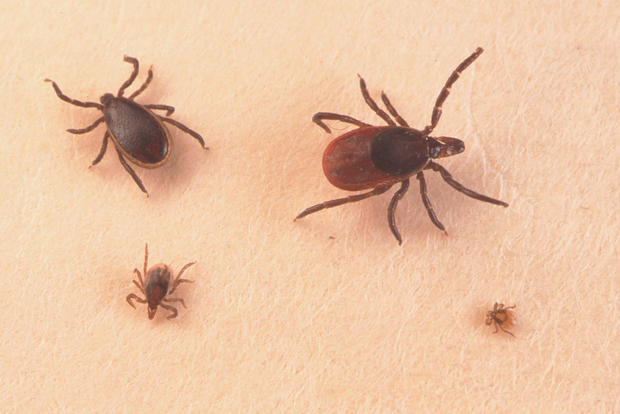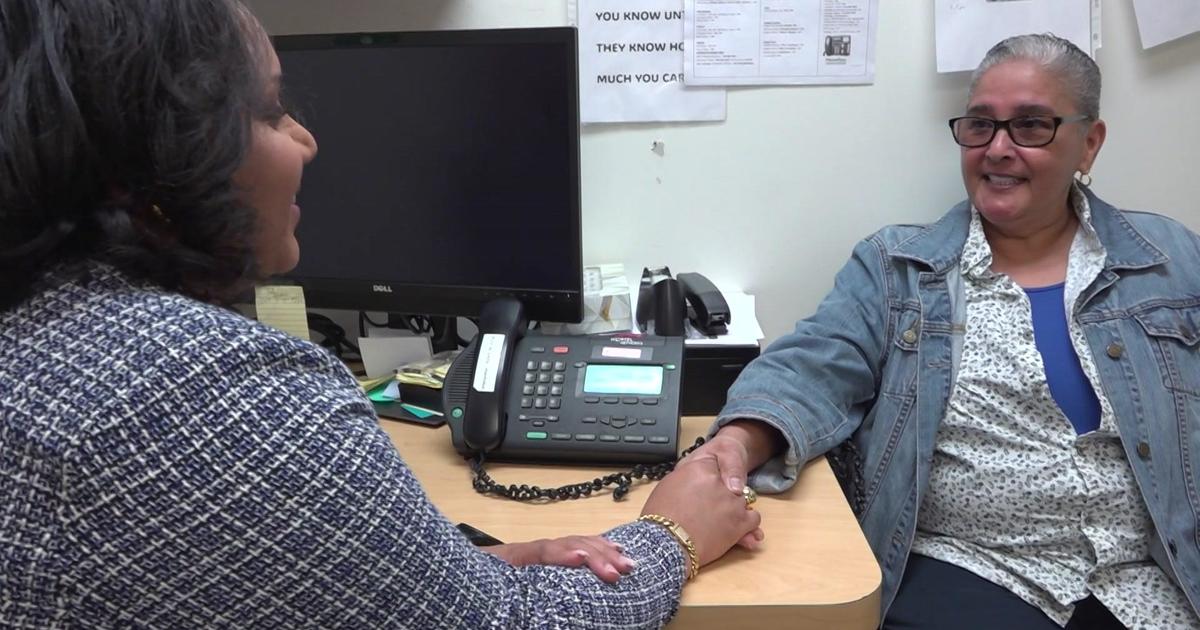Powassan Virus Facts: Things You Should Know
NEW YORK (CBSNewYork) — It's even worse than Lyme disease. Ticks in our area have been found to carry a rare, potentially life-threatening, virus.
As CBS2's Tracee Carrasco reported, doctors have warned that the Powassan virus, a rare, tick borne illness could be serious. It doesn't have a treatment or a cure.
"The doctor just has to support you during the acute illness and hope that you survive," Dr. Daniel Cameron, president of the International Lyme and Associated Diseases Society. explained.
Dr. Cameron said that if bitten by an infected tick you can get the virus within a matter of minutes and while the symptoms are similar to Lyme disease, they are more severe.
"You can get seizures, high fevers, stiff neck. It comes on so suddenly that it's the kind of thing people go to the emergency room for," he explained.
Doctors suggest there are steps you can take to protect yourself:
- Wear pants and long sleeves outside
- Avoid bushy and wooded areas
- Check for ticks on your body
- Wear bug spray containing 20-30% DEET
You should immediately consult a physician if you suspect that you've been bitten by a tick.
Here are some other pointers, courtesy of the Centers For Disease Control.
Preventing Tick Bites
While it is a good idea to take preventive measures against ticks year-round, be extra vigilant in warmer months (April-September) when ticks are most active.
Avoid Direct Contact with Ticks
- Avoid wooded and bushy areas with high grass and leaf litter.
- Walk in the center of trails.
Repel Ticks with DEET or Permethrin
- Use repellents that contain 20 to 30% DEET on exposed skin and clothing for protection that lasts up to several hours. Always follow product instructions. Parents should apply this product to their children, avoiding hands, eyes, and mouth.
- Use products that contain permethrin on clothing. Treat clothing and gear, such as boots, pants, socks and tents with products containing 0.5% permethrin. It remains protective through several washings. Pre-treated clothing is available and may be protective longer.
- Other repellents registered by the Environmental Protection Agency (EPA) may be found at http://cfpub.epa.gov/oppref/insect/.

Find and Remove Ticks from Your Body
- Bathe or shower as soon as possible after coming indoors (preferably within two hours) to wash off and more easily find ticks that are crawling on you.
- Conduct a full-body tick check using a hand-held or full-length mirror to view all parts of your body upon return from tick-infested areas. Parents should check their children for ticks under the arms, in and around the ears, inside the belly button, behind the knees, between the legs, around the waist, and especially in their hair.
- Examine gear and pets. Ticks can ride into the home on clothing and pets, then attach to a person later, so carefully examine pets, coats, and day packs.
- Tumble clothes in a dryer on high heat for an hour to kill remaining ticks. (Some research suggests that shorter drying times may also be effective, particularly if the clothing is not wet.)
Symptoms
- Many people who become infected with Powassan (POW) virus do not develop any symptoms.
- The incubation period (time from tick bite to onset of illness) ranges from about 1 week to 1 month.
- POW virus can infect the central nervous system and cause encephalitis (inflammation of the brain) and meningitis (inflammation of the membranes that surround the brain and spinal cord).
- Symptoms can include fever, headache, vomiting, weakness, confusion, loss of coordination, speech difficulties, and seizures.
- Approximately half of survivors have permanent neurological symptoms, such as recurrent headaches, muscle wasting and memory problems.
- Approximately 10% of POW virus encephalitis cases are fatal.
Treatment
- There are no vaccines or medications to treat or prevent POW virus infection.
- If you think you or a family member may have POW virus disease, see your health care provider for evaluation and diagnosis.
- Persons with severe POW illnesses often need to be hospitalized. Treatment may include respiratory support, intravenous fluids, and medications to reduce swelling in the brain.




